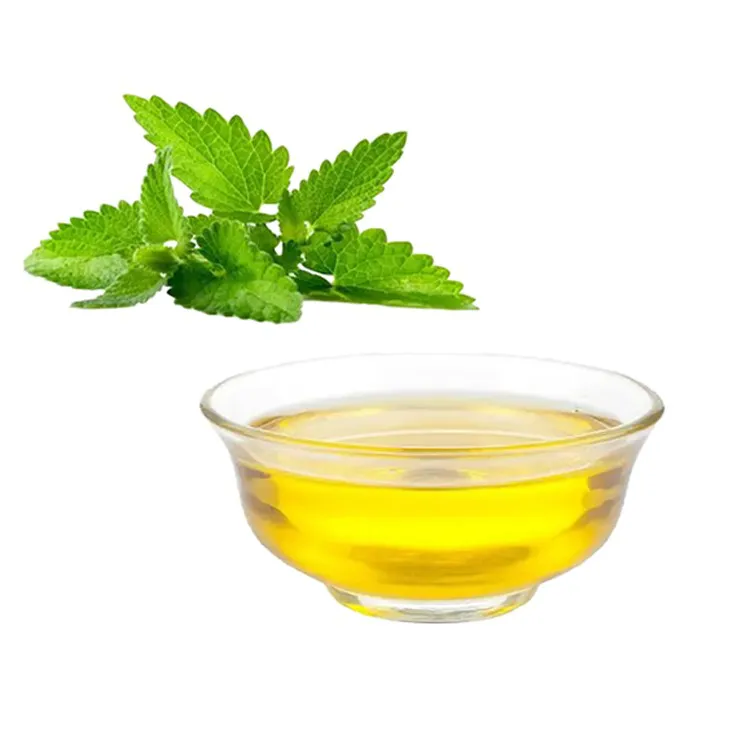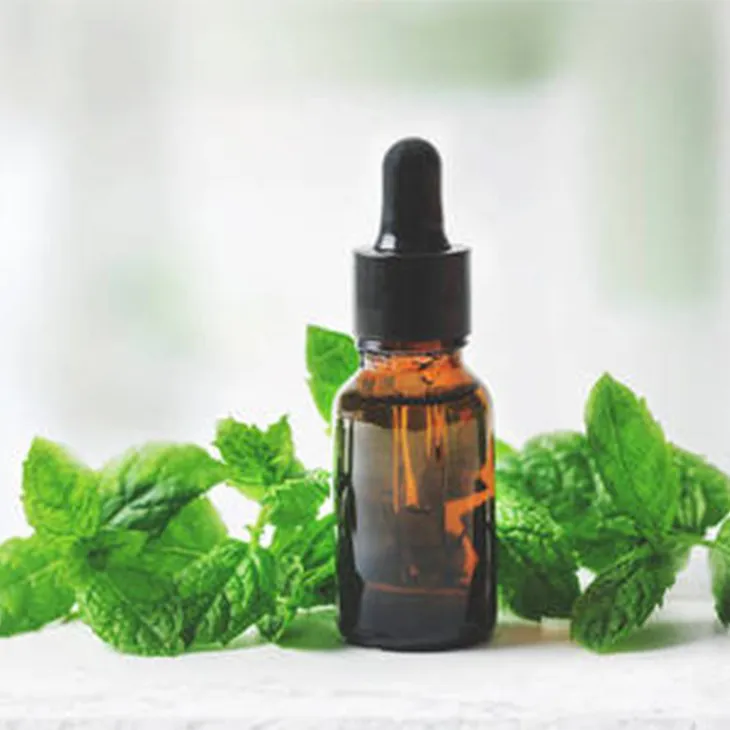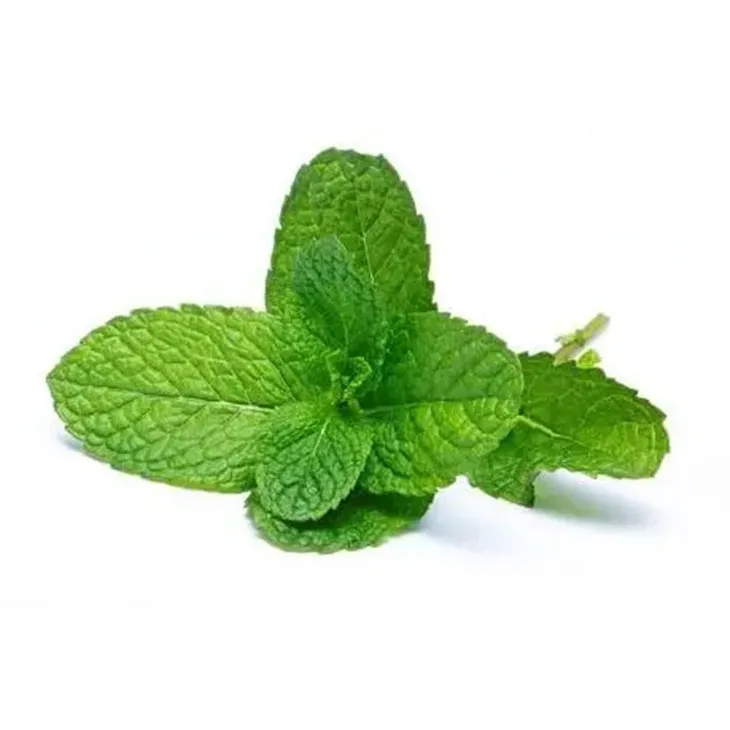- 0086-571-85302990
- sales@greenskybio.com
The Amazing Benefits of Organic Peppermint Oil.
2024-11-12

Introduction
Organic Peppermint Oil is truly a natural wonder that has been used for centuries due to its numerous benefits. It is derived from the peppermint plant, which is a hybrid of watermint and spearmint. This essential oil contains a rich profile of active compounds, such as menthol, menthone, and limonene, which are responsible for its diverse range of therapeutic properties.

Digestive Aid
One of the most well - known benefits of organic Peppermint Oil is its ability to act as a digestive aid. Digestive problems are common in today's fast - paced world, and Peppermint Oil offers a natural solution.
Soothing an Upset Stomach
When consumed in small amounts, peppermint oil can help soothe an upset stomach. The menthol in the oil has a cooling effect on the stomach lining, which can reduce irritation and discomfort. It can also help to relax the muscles of the gastrointestinal tract, allowing for smoother digestion.
Relieving Indigestion
Indigestion, which often includes symptoms such as bloating, gas, and heartburn, can be effectively relieved by organic peppermint oil. It helps to increase the flow of bile, which is essential for the breakdown of fats in the digestive system. This, in turn, can improve overall digestion and reduce the symptoms associated with indigestion.
Studies have shown that peppermint oil can be as effective as some over - the - counter medications for treating digestive issues. However, it is important to note that it should be used in moderation, as excessive consumption can cause side effects such as heartburn or allergic reactions in some individuals.

Natural Pain Reliever
Organic peppermint oil also serves as a natural pain reliever. Its analgesic properties make it a popular choice for those seeking alternative remedies for pain.
Headache Relief
When applied topically to the temples, forehead, or the back of the neck, peppermint oil can provide relief from headaches. The menthol in the oil has a cooling and numbing effect, which can help to reduce the pain associated with headaches. It also has a vasodilatory effect, which means it can increase blood flow to the area, further alleviating pain.
Many people prefer using peppermint oil for headache relief as it is a natural alternative to over - the - counter pain medications, which may have side effects such as drowsiness or stomach irritation. However, it is important to do a patch test before applying it to a large area of the skin, as some individuals may be sensitive to the oil.
Muscle and Joint Pain
In addition to headache relief, peppermint oil can also be used to relieve muscle and joint pain. When massaged into the affected area, the oil can penetrate the skin and reach the underlying muscles and joints. The menthol in the oil can help to relax the muscles, reduce inflammation, and relieve pain.
It can be particularly effective for minor muscle strains and joint aches. For example, athletes often use peppermint oil to soothe sore muscles after a workout. However, for more severe pain, it should be used in conjunction with other medical treatments.

Stress - Relieving Qualities
The refreshing aroma of organic peppermint oil has stress - relieving qualities, making it a great addition to aromatherapy.
Reducing Anxiety
When inhaled, the scent of peppermint oil can have a calming effect on the nervous system. It can help to reduce feelings of anxiety and promote a sense of relaxation. This is due to the fact that the aroma of peppermint oil can stimulate the olfactory receptors in the nose, which are connected to the limbic system in the brain, the area responsible for emotions and memory.
Many people find that using peppermint oil in a diffuser during times of stress can help them to feel more at ease. It can also be added to a warm bath or used in a massage oil for a more relaxing experience.
Improving Sleep Quality
Stress and anxiety can often lead to poor sleep quality. By reducing stress, peppermint oil can also help to improve sleep. The calming effect of the oil can help to relax the body and mind, making it easier to fall asleep and stay asleep throughout the night.
Some people like to place a few drops of peppermint oil on their pillow or use a peppermint - scented sleep mask to promote a more restful sleep. However, it is important to ensure that the oil does not come into direct contact with the eyes, as it can cause irritation.

Respiratory Health
Organic peppermint oil can also have a positive impact on respiratory health.
Decongesting the Nose
The menthol in peppermint oil has a decongesting effect on the nasal passages. When inhaled, it can help to clear mucus and reduce nasal congestion. This can be particularly helpful for those suffering from colds, flu, or allergies.
One way to use peppermint oil for nasal congestion is to add a few drops to a bowl of hot water and inhale the steam. Another option is to use a peppermint - scented nasal inhaler for on - the - go relief.
Relieving Coughs
Peppermint oil can also help to relieve coughs. It has an expectorant effect, which means it can help to loosen mucus in the lungs and make it easier to cough up. Additionally, the cooling effect of the menthol can soothe the irritated throat, reducing the urge to cough.
It can be used in a cough syrup or lozenge, or simply inhaled to relieve cough symptoms. However, it is important to consult a healthcare professional if the cough persists or is accompanied by other symptoms such as fever or shortness of breath.
Skin Health
Organic peppermint oil can also be beneficial for skin health.
Soothing Skin Irritations
The cooling and anti - inflammatory properties of peppermint oil make it effective for soothing skin irritations. It can be used to relieve itching, redness, and inflammation caused by insect bites, rashes, or minor burns.
To use peppermint oil for skin irritations, it can be diluted with a carrier oil such as coconut oil or olive oil and applied topically to the affected area. However, it should not be used on broken skin without consulting a healthcare professional.
Controlling Acne
Peppermint oil has antibacterial properties that can help to control acne. It can kill the bacteria that are responsible for causing acne breakouts, reducing inflammation and preventing new pimples from forming.
It can be added to a homemade face wash or toner for acne - prone skin. However, it is important to use it in moderation, as excessive use can cause skin irritation.
Oral Health
Organic peppermint oil can also contribute to oral health.
Freshening Breath
The refreshing taste and smell of peppermint oil make it a popular ingredient in many breath fresheners. It can mask bad breath and leave the mouth feeling clean and fresh.
It can be used in the form of peppermint - flavored toothpaste, mouthwash, or chewing gum. However, it is important to choose products that contain natural peppermint oil rather than artificial flavors.
Preventing Tooth Decay
Peppermint oil has antibacterial properties that can help to prevent tooth decay. It can kill the bacteria in the mouth that are responsible for producing acids that erode tooth enamel.
It can be added to a homemade toothpaste or used in conjunction with regular dental hygiene practices to help maintain good oral health.
How to Use Organic Peppermint Oil
There are several ways to use organic peppermint oil, depending on the desired benefit.
Internal Use
- When using peppermint oil internally, it is important to use a high - quality, food - grade oil. Only a few drops are typically needed.
- It can be added to a glass of water, tea, or other beverages for digestive support. However, it should not be consumed undiluted, as it can be irritating to the digestive tract.
- Another option is to take peppermint oil capsules, which are available in health food stores. These capsules are pre - measured and can be a convenient way to consume the oil for digestive or other health benefits.
Topical Use
- For topical use, peppermint oil should always be diluted with a carrier oil such as jojoba oil, almond oil, or coconut oil. This helps to prevent skin irritation.
- It can be applied to the skin for pain relief, skin health, or as part of a massage. When applying it to the face, it is especially important to use a diluted solution and to avoid the eyes.
- If using peppermint oil for headache relief, a few drops can be applied to the temples, forehead, or the back of the neck and gently massaged in.
Aromatherapy Use
- Peppermint oil can be used in aromatherapy in several ways.
- It can be added to a diffuser, which will disperse the aroma throughout the room. This is a great way to enjoy the stress - relieving and respiratory benefits of the oil.
- Another option is to add a few drops to a bowl of hot water and inhale the steam. This can be especially beneficial for relieving nasal congestion or coughs.
- It can also be added to a sachet or potpourri for a refreshing and aromatic addition to a room.
Precautions and Side Effects
While organic peppermint oil has many benefits, it is important to be aware of some precautions and potential side effects.
Allergic Reactions
Some people may be allergic to peppermint oil. Signs of an allergic reaction may include skin rash, itching, swelling, or difficulty breathing. If you experience any of these symptoms after using peppermint oil, discontinue use immediately and seek medical attention.
Skin Sensitivity
Even when diluted, peppermint oil can cause skin irritation in some individuals. It is always a good idea to do a patch test on a small area of skin before using it more widely. If you experience redness, itching, or burning after applying peppermint oil, wash the area with soap and water and discontinue use.
Internal Use Precautions
When using peppermint oil internally, it is important to follow the recommended dosage. Excessive use can cause side effects such as heartburn, nausea, or vomiting. Pregnant and breastfeeding women should consult their healthcare provider before using peppermint oil internally, as it may have potential effects on the fetus or infant.
Conclusion
Organic peppermint oil is a versatile and natural remedy with a wide range of amazing benefits. From digestive aid to pain relief, stress reduction, and more, it has been used for centuries to promote health and well - being. However, it is important to use it safely and be aware of any potential side effects. By incorporating peppermint oil into your daily routine in a proper way, you can take advantage of its many therapeutic properties and enjoy a healthier, more balanced life.
FAQ:
Q1: How does organic peppermint oil aid digestion?
Organic peppermint oil can soothe an upset stomach and relieve indigestion. It likely works by relaxing the muscles in the digestive tract, which helps food move through more easily and reduces discomfort such as bloating and cramps.
Q2: Can organic peppermint oil really relieve headaches?
Yes, when applied topically, organic peppermint oil can act as a natural pain reliever for headaches. The menthol in peppermint oil has a cooling effect that can help ease headache pain.
Q3: How does the aroma of organic peppermint oil relieve stress?
The refreshing aroma of organic peppermint oil has stress - relieving qualities. When inhaled, it can stimulate the olfactory system, which in turn sends signals to the brain that can help relax the body and reduce feelings of stress and anxiety.
Q4: Are there any side effects of using organic peppermint oil?
When used properly, organic peppermint oil is generally safe. However, some people may experience skin irritation when applied topically. If ingested in large amounts, it may also cause digestive issues. It is important to follow the recommended usage instructions.
Q5: How can one use organic peppermint oil for aromatherapy?
For aromatherapy, one can use a diffuser to disperse the aroma of organic peppermint oil in a room. Alternatively, a few drops can be added to a warm bath or a cloth and inhaled directly for its stress - relieving and relaxing effects.
Related literature
- The Health Benefits of Organic Peppermint Oil: A Comprehensive Review"
- "Peppermint Oil: Organic vs. Non - Organic and Their Respective Benefits"
- "Organic Peppermint Oil in Digestive Health and Wellness"
- ▶ Hesperidin
- ▶ citrus bioflavonoids
- ▶ plant extract
- ▶ lycopene
- ▶ Diosmin
- ▶ Grape seed extract
- ▶ Sea buckthorn Juice Powder
- ▶ Beetroot powder
- ▶ Hops Extract
- ▶ Artichoke Extract
- ▶ Reishi mushroom extract
- ▶ Astaxanthin
- ▶ Green Tea Extract
- ▶ Curcumin Extract
- ▶ Horse Chestnut Extract
- ▶ Other Problems
- ▶ Boswellia Serrata Extract
- ▶ Resveratrol Extract
- ▶ Marigold Extract
- ▶ Grape Leaf Extract
- ▶ blog3
- ▶ blog4
- ▶ blog5
-
Organic Tongkat Ali extract powder factory.
2024-11-12
-
How to make powder with ashwagandha extract.
2024-11-12
-
Rosehip extract manufacturers from China.
2024-11-12
-
The best cat's claw extract in nature.
2024-11-12
-
Chinese Dandelion Leaf Extract Suppliers.
2024-11-12
-
Beetroot Powder
2024-11-12
-
Lycopene
2024-11-12
-
Coconut Water Powder
2024-11-12
-
Red Vine Extract
2024-11-12
-
Lily extract
2024-11-12
-
Artichoke Leaf Extract
2024-11-12
-
Black Pepper Extract
2024-11-12
-
Lavender Extract
2024-11-12
-
Plantain extract
2024-11-12
-
Grapefruit Seed Extract Powder
2024-11-12





















